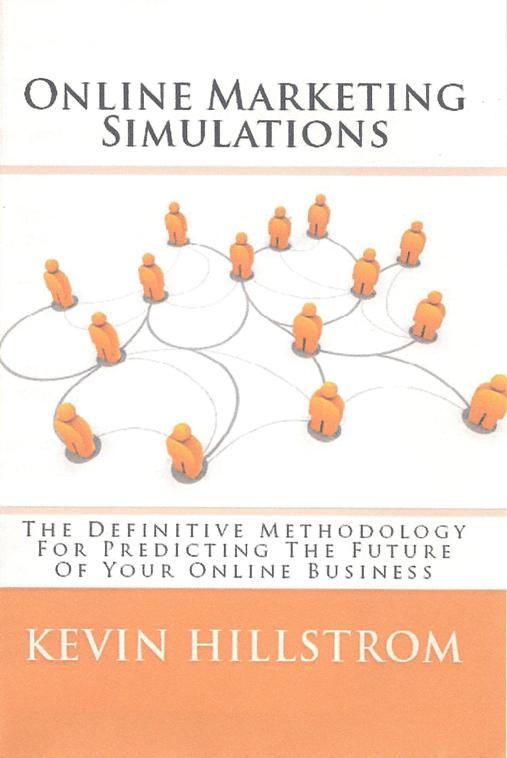Leaving Lands' End
Today, I stumbled across a Powerpoint presentation I gave at Lands' End, back in the embryonic stages of a thing called the internet.
The 1994 presentation outlined the impact of mailing numerous, small, targeted niche catalogs to customers. From mid-1993 to mid-1994, our list processing experts correctly executed 128 simultaneous, annual holdout tests, impacting ten percent of our housefile. Using experimental design techniques that would make Ph.D. statisticians at Kansas State University proud, we were able to understand how much incremental sales we could generate by mailing an increased number of targeted mailings.
We were able to demonstrate that a customer began to 'tire' after receiving a catalog more frequently than every eighteen days. Each additional catalog we mailed to the customer drove less and less incremental sales. Eventually, we put too pressure on the customer's wallet. Instead of spending more, she began to allocate her dollars, proportionately, across the catalogs we mailed.
At the time, each business unit determined their own catalog contact strategy. There was not a lot of coordination between business units. If a customer recently purchased a turtleneck from our monthly catalog, each business unit immediately mailed the customer a targeted merchandise catalog, because this customer was a 'recent' buyer, a great prospect for their merchandise offering.
Our year-long test "suggested" that a centralized, coordinated circulation effort could generate more profit (though it would result in a decrease in sales) than allowing each business unit to determine their own circulation strategy.
In October and November of 1994, we presented our findings to management. I recall spirited debates, and for good reason. If you were the Vice President responsible for running a business unit, and some dweeb in the circulation department suggests he control your marketing strategy, you might elect to lash out at him!
Late in November 2004, our circulation team was gaining momentum on the opportunity to have centralized control over the catalog marketing strategy. I recall a raucous Christmas party on a Friday evening, where we celebrated our success with a veritable plethora of alcoholic beverages, mixed with a heavy dose of arrogance. All seemed good in the world.
We recovered from our weekend, and arrived to a new work landscape on Monday morning. Within a half hour, we were informed that Bill End, the CEO of the past several years, and in my opinion a friend of our work, was being replaced by a gentleman named Mike Smith, the current President of Bag, Borrow or Steal. Mike was previously the leader of one of the business units that had control over it's own catalog marketing strategy.
No single inflection point in my career impacted me more than this one. Within days, our circulation director was asked to run the Kids division. A person outside of our circulation team, with little or no true circulation experience, was promoted ahead the existing managers in our department. He became our new boss. He was a good, bright person --- but not the person we anticipated would succeed the prior leader.
In my case, I lost all but one of the analysts I had reporting to me, as they were assigned to marketing teams responsible for driving the circulation strategies of their own merchandise divisions. A centralized strategy would not happen in 1995.
Within two weeks, I went from feeling like a hero, to feeling like a zero.
Eleven months later, I would follow a former Lands' End manager to Eddie Bauer. I was leaving Lands' End.
I have yet to work in an environment that was as stimulating as the one at Lands' End during the final six months of 1994. Many of the individuals working in circulation at that time have gone on to do great things. Many more have gone on to be great people.
The best lesson I learned from that experience involves the concept of being "right". As a mid-level manager at a billion dollar company, I strongly believed that I was "right", that I had a strategy that would improve our profitability, that all needed to bow down to the brilliantly conceived strategy of an arrogant twenty-nine year old.
Being "right" means very little. Articulating a strategy that allows everybody to benefit, personally and professionally, means everything. Not many of us are able to pull off the latter.
Within six short months, I learned everything I needed to know about office politics, marketing strategy, autonomy and empowerment, the use of analytics in decision making, and the great impact one single inflection point can have upon a person's career.
Your turn --- is there an event that happened in the course of your career that impacted you, professionally and personally? If you experienced such an event, what did you learn from the experience?
Labels: Bag Borrow Or Steal, Bill End, catalog, Database Marketing, Lands' End, Mike Smith


